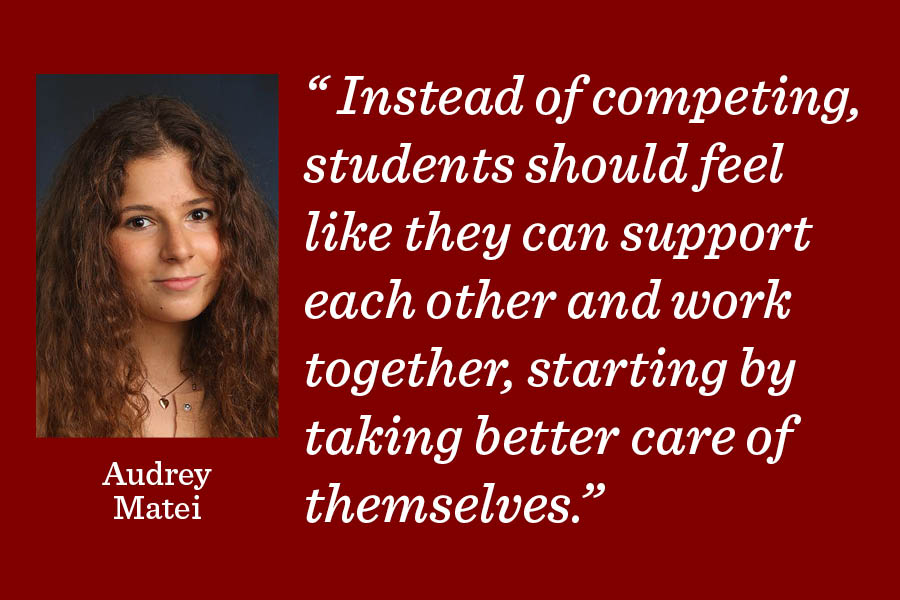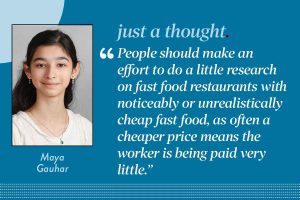Peer support must replace peer competition
Midway Staff
By comparing how bad their stress is, students only worsen their problems and block solutions, writes content manager Audrey Matei.
February 10, 2022
During a history class a presence of stress is tangible. School work is gearing up for the end of semester, extra-curricular events and competitions are increasing in frequency, and the ever-present pressure of college admissions is growing for many juniors in the AT U.S. History class.
A familiar conversation plays out between two students. One says “I’m running off three hours of sleep,” while another retorts “Well, I’m only running off two.” Right after the class ends, two other students compare how many hours they spent on a recent paper, trying to one-up each other as if spending an extended amount of time on a school project isn’t already an accomplishment.
Students shouldn’t feel like they have to compare their stress; instead, peer support should be fostered by maintaining healthy habits.
It would be hypocritical to claim that I haven’t engaged in similar conversations, which form a terrible-yet-easy pattern of negativity.
Comparing stress only reinforces toxic habits. Trying to “win” in a conversation of “who has it harder” only achieves higher standards for everyone. For high-achieving students, pushing yourself as hard as possible is a common goal. Consequently, if there is a constant feeling that you aren’t pushing yourself as hard as other students, it can feel like you aren’t as smart as them or as likely to get into a “good” college as them, regardless of any other factors.
Comparing stress won’t actually alleviate stress. Feeling overwhelmed is a common feeling for students. However, promoting these stress-related thoughts through comparisons with other students doesn’t achieve any relief and is harmful to mental health, continuing a toxic cycle. A study published in Cognitive Therapy and Research about repetitive stress-related negative thinking states “positive associations were found between all [measured indices of negative repetitive] thinking and symptoms of depression and anxiety.”
Although, communication about workload between students can still have benefits. Discussing workload issues with other students isn’t inherently a negative thing. However, the conversations shouldn’t be focused around which student has it harder but rather how they can make it better by sharing experiences, healthy habits and resources.
Peers need to practice self-maintenance to improve their community. First, students should make sure they are taking care of themselves. By maintaining healthy habits and a healthy workload for yourself, it is easier to focus on mental health and not on extreme expectations. This allows work to be more collaborative with more time for meaningful focus, less opportunities for negative spiraling and sets new examples for peers.
School is a place with a primary focus on learning, an inherently collaborative action. Instead of competing, students should feel like they can support each other and work together, starting by taking better care of themselves.
Schools with competitive environments like U-High make it easy for students to feel like they aren’t doing enough compared to other students, but these comparisons are dangerous and actively need to be changed.





























































Laura Doto • Feb 13, 2022 at 3:59 pm
You are so right Audrey! Thank you for writing this piece. Teachers definitely have opportunities to promote collaboration and support rather than competition when it comes to breaking the (bad or dis)stress cycles among students. Healthy start committee members are reading!